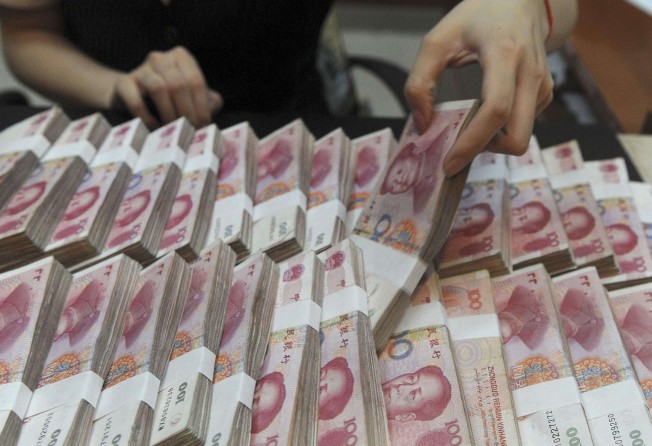Standard Chartered, China Merchants sign One Belt, One Road agreement
Banks in Hong Kong and China are looking for commercially viable projects in which to invest as part of the Beijing initiative

Standard Chartered and Shenzhen based China Merchants Bank signed a “One Belt One Road” cooperation agreement on Tuesday to work together to provide financial services to projects and activities related to the Chinese government’s flagship scheme.
Areas in which the two banks will cooperate will include project financing, renminbi internationalisation and bilateral investment treaties for multinational corporations, according to a statement.
“With this partnership, we will be able to expand our offerings and leverage Standard Chartered’s network and franchise capabilities to better support our clients’ growth plans,” said Li Gongzheng, China Merchants’ deputy general manager of financial institutions.
Standard Chartered’s global head of banks, Anurag Bajaj, said there was an estimated US$1 trillion in financing needs for the next decade in One Belt One Road countries.
Banks in Hong Kong and mainland China are looking for new areas for profit opportunities as their traditional drivers of growth are slowing. In its review last week of mainland banks’ performance in the first half of this year, PwC identified the One Belt One Road initiative as being a “major opportunity for China’s banking industry”.
“It is still very early days, but I would expect that every bank in Hong Kong would consider getting involved in One Belt One Road projects,” Citic International Bank’s first vice president Liao Qun told the South China Morning Post.
“Banks are looking for safe and profitable projects, and while One Belt One Road projects might not be especially profitable initially, because of the government involvement, they are likely to be safer than other equivalent projects in emerging economies,” he said.
As not all projects will be profitable, multinational organisations like the Asian Infrastructure Investment Bank, the Silk Road Fund as well as China’s policy banks will do most of the heavy lifting in the early days of the scheme.
The AIIB has US$100 billion of capital available while the Silk Road Fund has US$40 billion.
“The commercial banks are obviously going to be more focused on the profitability of a project than the policy banks. This means that projects like ports or roads are likely to be more appealing to commercial banks than, for example, sanitation infrastructure, which will be left to the policy banks,” said Geoffrey Cheng, BoCom International’s head of transportation research.
“Furthermore, the legal jurisdiction of a project is likely to be a consideration for commercial banks. I would imagine that these banks will be more likely to invest in South East Asia, than, for example, central Asia, because of legal concerns.”
Even though it is still early days, such investments are starting to be seen. Last week, Singapore’s Straits Times reported that on September 19 ICBC signed a number of agreements linked to the One Belt One Road in the country. Among these was an agreement with the Singapore Business Federation to extend up to 50 billion yuan in funding to its members for infrastructure investments under the One Belt One Road.